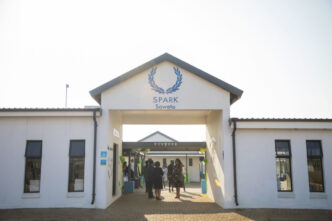Spark Schools, a prominent network of private institutions in South Africa, has initiated an internal probe following the discovery of a toxic insecticide in its Rosebank support office kitchen. The substance, identified as terbufos—a highly hazardous pesticide—was detected in both coffee and milk supplies, prompting immediate action from the organization.
The school group confirmed the incident occurred at its administrative hub, though no students were affected. However, the revelation has raised alarms among parents and educators, with many questioning workplace safety protocols and potential motives behind the contamination. A criminal case has been opened, and the South African Police Service (SAPS) is assisting with the investigation.
In a statement, Spark Schools emphasized its commitment to transparency, stating, “The health and safety of our staff and learners remain our top priority. We are cooperating fully with authorities to identify those responsible”. The organization, known for its tech-enabled, affordable education model, has faced scrutiny over past operational challenges, including a 2024 expansion project in the Western Cape that highlighted its rapid growth.
Local parent Thandi Nkosi expressed unease: “If this happened in the staff kitchen, how do we know classrooms are safe?” Others pointed to broader concerns about institutional accountability, referencing recent controversies involving the Eastern Cape education department’s legal disputes over alcohol-related incidents.
Authorities have not disclosed whether the contamination was intentional or accidental. Terbufos, a restricted-use pesticide, is typically applied in agriculture to control pests but poses severe health risks to humans, including neurological damage.
As the investigation unfolds, Spark Schools’ response will be critical in restoring trust. The incident underscores the fragility of safety systems in workplaces and the urgent need for stricter oversight in educational institutions nationwide.













